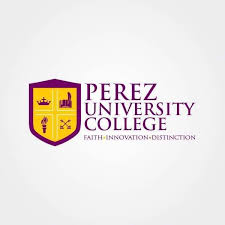Government promotes 24-hour economy plan to US investors

Dr. Mary Awusi, the Chief Executive Officer of the Ghana Freezones Authority, has launched an extensive campaign to attract foreign investors to take advantage of the government’s new 24-hour economy strategy. In a bid to increase economic activity and productivity, Dr. Awusi addressed potential investors at the 3rd US-Ghana Business Expo in Lancaster, Pennsylvania, on Tuesday, where she outlined the government’s ambitious plan for round-the-clock operations in critical sectors.
At the event, Dr. Awusi explained that the government’s 24-hour economy initiative is designed to drive operations across key industries, aiming to encourage businesses to run on a continuous basis, preferably in a three-shift system of eight hours each. The goal is to foster a dynamic environment that enhances productivity, boosts competitiveness, and creates high-quality jobs. “The Ghanaian government is introducing a 24-hour economy strategy as a policy intervention to promote the growth of certain businesses and industries,” Dr. Awusi stated. “This strategy will create a favorable environment that ensures our businesses remain competitive and productive, supporting the creation of sustainable employment.”
The business expo, held in Lancaster, is part of a broader effort to strengthen business ties between Ghana and the United States. The event, which includes about 20 Ghanaian businesses, serves as a platform for discussions between business owners from both countries. Organized by the US-Ghana Chamber of Commerce and supported by several key institutions, including the US Commercial Service, the Association of Ghana Industries (AGI), and Millersville University, the expo focuses on exploring opportunities in sectors such as agriculture, energy, healthcare, trade, investment, fintech, real estate, and technology.
In her address, Dr. Awusi also elaborated on how the 24-hour economy strategy will be achieved through a range of initiatives, including the modernization of agriculture, the encouragement of agro-processing and manufacturing, and providing the private sector with the necessary incentives to thrive. Additionally, Dr. Awusi highlighted the government’s broader goal of transforming Ghana into an export-driven economy. “We aim to make Ghana a hub for export-led growth,” she explained. “We want to reduce our reliance on imports and build a strong export sector that can contribute meaningfully to the country’s GDP.”
A crucial part of this strategy is the Accelerated Export Development Programme (AEDP), which aims to enhance Ghana’s export competitiveness in the global market. Dr. Awusi emphasized that the program would improve the business climate for exporters and ensure that Ghana’s products stand out in international markets.
Dr. Awusi also stressed that the implementation of the African Continental Free Trade Area (AfCFTA) would further strengthen Ghana’s position as a gateway to a vast market of over 1.3 billion people, with a combined GDP of US$3.4 trillion. She noted that this, alongside the country’s National Export Development Strategy (NEDS), would allow businesses to capitalize on a wide range of profitable opportunities while contributing to Ghana’s economic progress.
“The NEDS is aimed at expanding and developing the non-traditional export (NTE) sector,” Dr. Awusi explained. “By focusing on this sector, we aim to make it a significant contributor to GDP growth, job creation, and national development.” She added that the NEDS is integral to maintaining Ghana’s middle-income status while improving the living standards of the population.
During her presentation, Dr. Awusi also urged American investors to explore business opportunities in several key sectors, including healthcare, global business services, and agriculture. She highlighted the growing demand for healthcare infrastructure, pharmaceuticals, and telemedicine in Ghana, pointing out that investments in these areas could significantly improve healthcare delivery across the region.
Dr. Awusi also emphasized that agriculture remains the foundation of Ghana’s economy, with abundant arable land and a growing commitment to agro-processing. “Ghana’s Free Zones and the National Export Development Strategy are designed to support investments in agriculture, especially those that focus on adding value and improving export competitiveness,” she said. “We want to position Ghana as a major supplier of high-quality agricultural products to global markets.”
The Ghana Freezones Authority, she noted, is prepared to support investors interested in the country’s Free Zones and beyond, facilitating their entry into Ghana’s growing economy.
Professor Daniel Wubah, President of Millersville University, expressed optimism that the event would foster meaningful partnerships between Ghanaian and American businesses. He expressed hope that these connections would not only contribute to the growth of both economies but also foster long-term, mutually beneficial collaborations.





